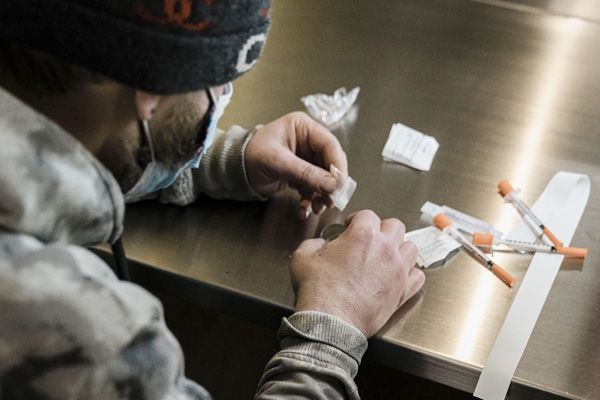HARM REDUCTION SAVES LIVES –
Feb. 23, 2022 – Kristina Peterson anxiously tapped the heels of her boots on the tile floor inside the brightly lit lobby. Moments earlier, she had given her date of birth to an intake coordinator and answered an inquiry about the drug she planned to use.“Heroin,” she said, referring to the tiny glassine envelope stamped “Off White” tucked inside her black purse.For much of the last decade, Peterson has been hooked on heroin, her addiction becoming increasingly severe and public. Occasionally, she has shot up in quiet corners of subway stations as she waited for the E train back to the apartment where she lived in Queens. She sought to battle her addiction by taking methadone, but soon relapsed and was rushed to an emergency room after she overdosed in a park a few blocks from an elementary school. “This is nothing I’m proud of,” she said on a recent afternoon while sitting inside an overdose prevention center, one of two in New York City that are the first authorized by a local government in the U.S. But “if I’m getting high, I want to do it here.” Last year, a record 100,000 Americans died from drug overdoses. Officials at the Centers for Disease Control and Prevention say the grim milestone stemmed from the stresses of the COVID-19 pandemic and an increasingly dangerous drug supply. In reaction, some elected officials and activists have ramped up efforts to open centers where drug users can be monitored as they shoot up and immediately receive treatment if they begin to overdose.
The pair of sites in New York City, privately funded and run by a nonprofit called OnPoint NYC, have been supported by former Mayor Bill de Blasio and his successor, Eric Adams, and are similar to centers long open in Canada, Europe and Australia.
Although they remain illegal under federal law, in recent days the U.S. Department of Justice has hinted that it intends to green light such sites — a drastic pivot from the Trump administration’s stance.



